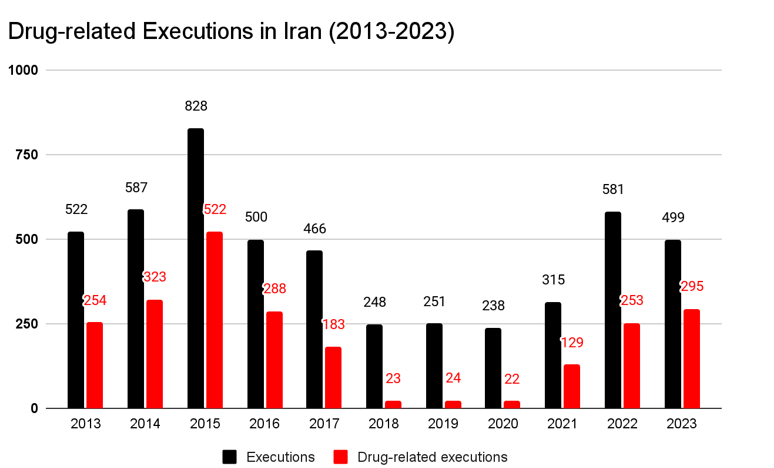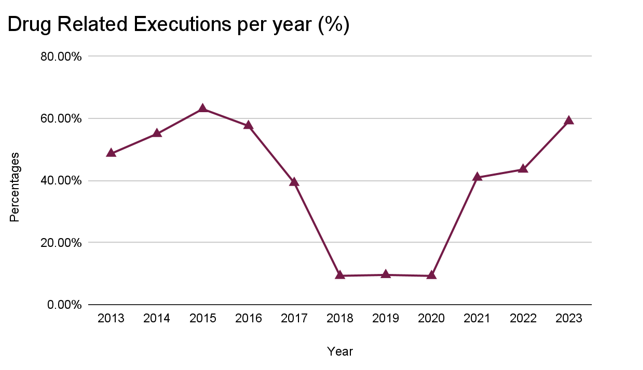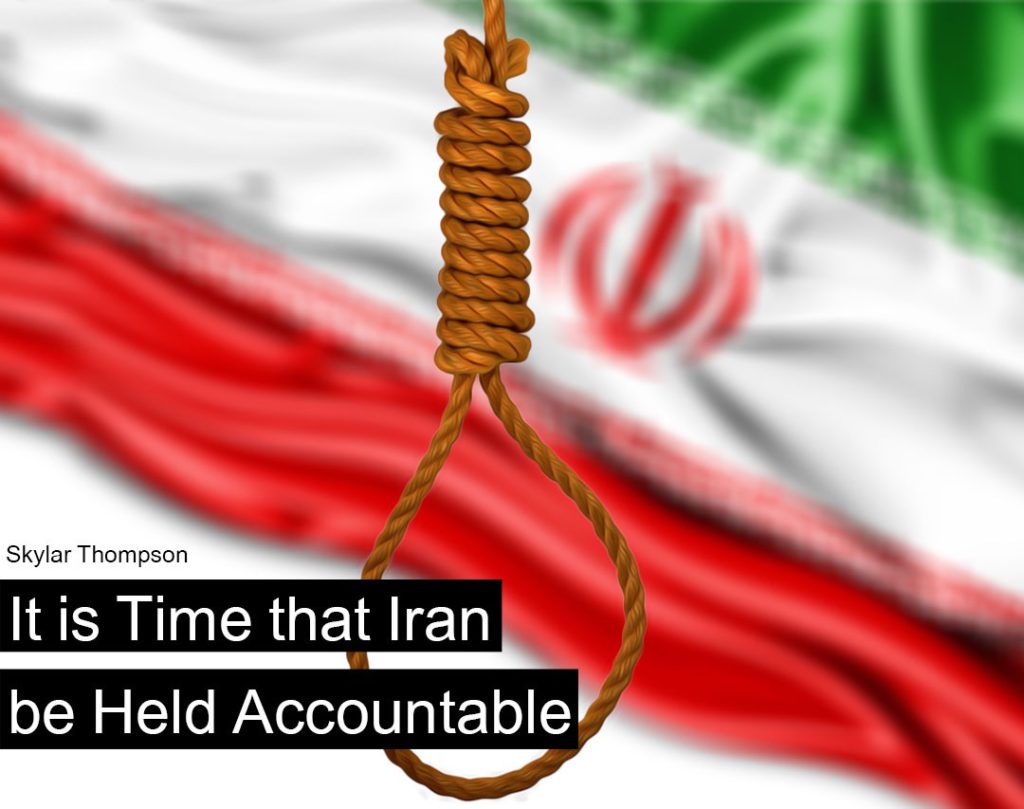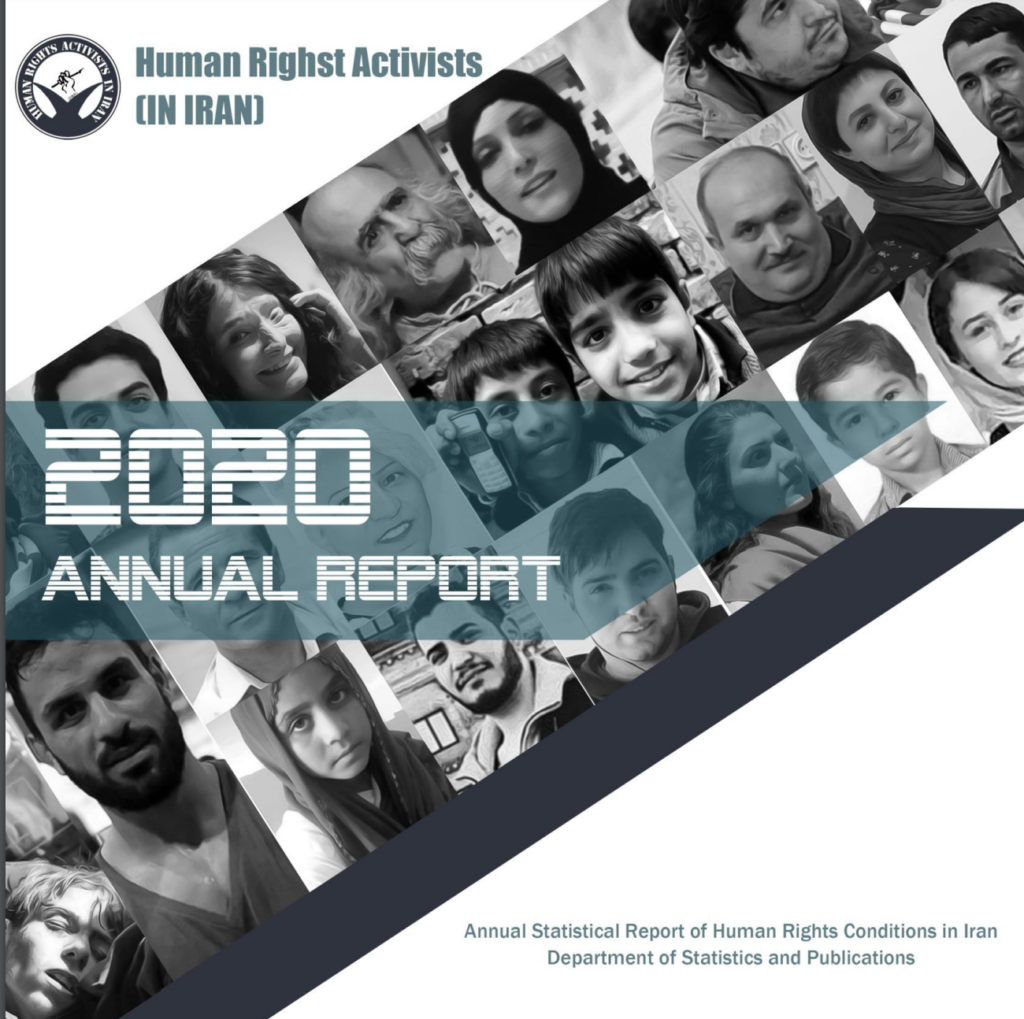According to HRA, at least 5,000 executions in last 10 years, 2,316 drug-related
Every year on October 10th, the World Day Against the Death Penalty is observed globally to promote awareness surrounding the complexities of capital punishment. This day serves as a catalyst for conversations, education, and activism, all aimed at advancing human rights and the global movement to eliminate the death penalty.
As of October 2023, Iran has been executing an average of 10 people per week. From 2013 to 2023, HRANA has identified a total of 5034 executions, out of which 2,316 were drug-related. The majority of those executed were men. Iran has also sentenced 31 juvenile offenders to death, including one for a drug-related offense. It’s important to note that Iran is a state party to the International Covenant on Civil and Political Rights (ICCPR), which strictly emphasizes that the death penalty should only be used for the “most serious crimes,” and any deviation from this principle would be considered a violation of the Right to Life.


It is crucial to acknowledge that Iran’s domestic judicial system is plagued with numerous due process violations. These violations include coerced forced confessions, torture, inhumane treatment, and a lack of adequate legal representation to name a mere few. Frequently, judges and prosecutors involved in grave right to life violations act with absolute impunity.
- Farajollah Kargar
- Seyed-Mostafa Mahmoudi Moghadam
- Mohammad Karimi
- Mohammad-Reza Amouzad
- Asadollah Jafari
- Heydar Asiabi
- Mohammad-Vali Abdollahi:
- Salman Adinehvand
- Ahmad Ghorbani
- Mohsen Nikvarz
- Ali Zare Nouri
- Yadollah Movahed
It is evident that any death sentence imposed for drug-related offenses represents a clear violation of the right to life. The persistence of such executions, particularly when trials are marred by due process violations, is deeply concerning. Iran should immediately establish a moratorium on all executions, with a view to abolishing the death penalty in all circumstances.



